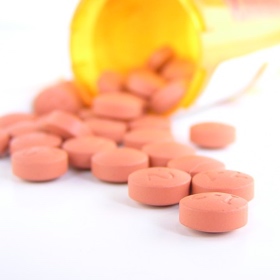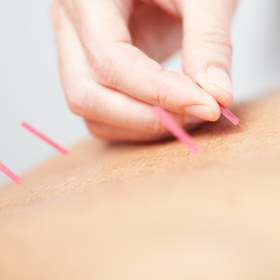The Importance of Clinical Skills in Complementary Health
Questioning, inquiry and clinical observations serve a number of functions in complementary health practices at Shine in North London.
These include informing and supporting a treatment plan, assessing the intended outcome of a treatment, anticipating the response to a treatment and/or the likelihood of referring a client/patient onto other clinicians or healthcare professionals where appropriate.
 What are clinical skills?
What are clinical skills?
Gathering a health and medical history through inquiry can help uncover past and present concerns. Asking about physical and emotional health can be useful to plan a treatment appropriately.
Collecting objective and subjective information during a consultation forms the basis for care and appropriate treatment; it distinguishes physical changes or identifies red flags. Red flags can indicate a pathology relating to a particular organ system.
Questioning and inquiry is useful to understand…
Presenting problem – In a client’s own words, what causes them to seek treatment.
Medical history – Are there any current medical or health concerns, such as; high blood pressure,  diabetes, allergies, presenting pain. Is the client/patient taking any medication including vitamins and supplements.
diabetes, allergies, presenting pain. Is the client/patient taking any medication including vitamins and supplements.
Psychosocial – How does the client feel at work and at home. What is their level of stress like. Anxiety. What is their occupational and social environment like and are there any big life-changing events happening right now.
Activities and daily living – Diet, exercise routine, cardiovascular health, sleep or non-sleep, units of alcohol, drug and tobacco consumption.
Observations and subtle cues
A client’s health can sometimes be reflected in their behaviour and appearance. Some examples of cues to look out for are:
Movement – How is the client’s posture, gait and coordination.
 Extremities – Is there any swelling or oedema in the feet, ankles or hands. Presentation of sharp pain in calves after a flight. Presentation, discolouration or clubbing of nails.
Extremities – Is there any swelling or oedema in the feet, ankles or hands. Presentation of sharp pain in calves after a flight. Presentation, discolouration or clubbing of nails.
Expression – Is the client in pain or do they look unwell. Is the client anxious?
Appearance – Signs of breathlessness or shortness of breath. Redness or signs of bleeding or bloodshot eyes. Symmetry in the face or clarity in their eyes.
Skin – Rashes, irregular dark and large moles, and bruising.
Heart – Palpitations, rapid pulse or chest and arm pain.
Why is it important in complementary health?
The use of complementary therapies has rapidly increased and developed over the last two decades. People are turning to complementary health practitioners more and more to improve wellbeing and manage stress.
 The term complementary therapy refers to a treatment or therapy that is not provided by a medical professional such as a doctor or a nurse. It can be very useful for a complementary practitioner to recognise or identify potential risks, signs and symptoms for further GP investigation.
The term complementary therapy refers to a treatment or therapy that is not provided by a medical professional such as a doctor or a nurse. It can be very useful for a complementary practitioner to recognise or identify potential risks, signs and symptoms for further GP investigation.
It is worth mentioning that some complementary therapies like massage, reflexology, acupuncture and osteopathy can be used alongside conventional treatment associated with cancer recovery to help induce relaxation and reduce pain and discomfort so it is important that symptoms are monitored.
A common case – musculoskeletal questioning and observation
According to the National Institute for Health and Care Excellence (NICE), lower back pain causes more discomfort and disability than any other condition. Prevalence increases with age and is found to be more common in women. Modifiable factors associated with lower back pain and sciatica includes occupational factors, obesity, and injury.
 There are a number of non-pharmacological treatments available which include self-management; exercise and Pilates, manual therapy; massage and acupuncture, and Physiotherapy. Knowing what to look out for when assessing bones, joints, muscles, soft tissue, range of movement, reflexes, muscle strength, headaches signs, dizziness and numbness can determine abnormalities, unidentified injury or neurological abnormalities that can be referred on to prevent further injury or damage.
There are a number of non-pharmacological treatments available which include self-management; exercise and Pilates, manual therapy; massage and acupuncture, and Physiotherapy. Knowing what to look out for when assessing bones, joints, muscles, soft tissue, range of movement, reflexes, muscle strength, headaches signs, dizziness and numbness can determine abnormalities, unidentified injury or neurological abnormalities that can be referred on to prevent further injury or damage.
The integration of basic clinical knowledge is a useful tool to support a holistic, client-centred approach in complementary health in order to form a professional opinion through an informed, systematic process keeping clients, patients and practitioners safe.
Written by Hayley D’Arcy
Acupuncturist, Aromatherapist, CACI Facial specialist and Reflexologist at Shine.
References
National Institute for Health and Care Excellence (NICE, 2017). Lower back and sciatica.
Retrieved from https://www.nice.org.uk/guidance/qs155/documents/briefing-paper.
Rushforth, H. (2009). Assessment made incredibly easy!. Philadelphia: Lippincott Williams &Wilkins.
Wilkinson, I., Raine, T., Wiles, K., Goodhart, A., Hall, C. and O‘Neill, H. (n.d.). Oxford
handbook of clinical medicine. 9th ed.